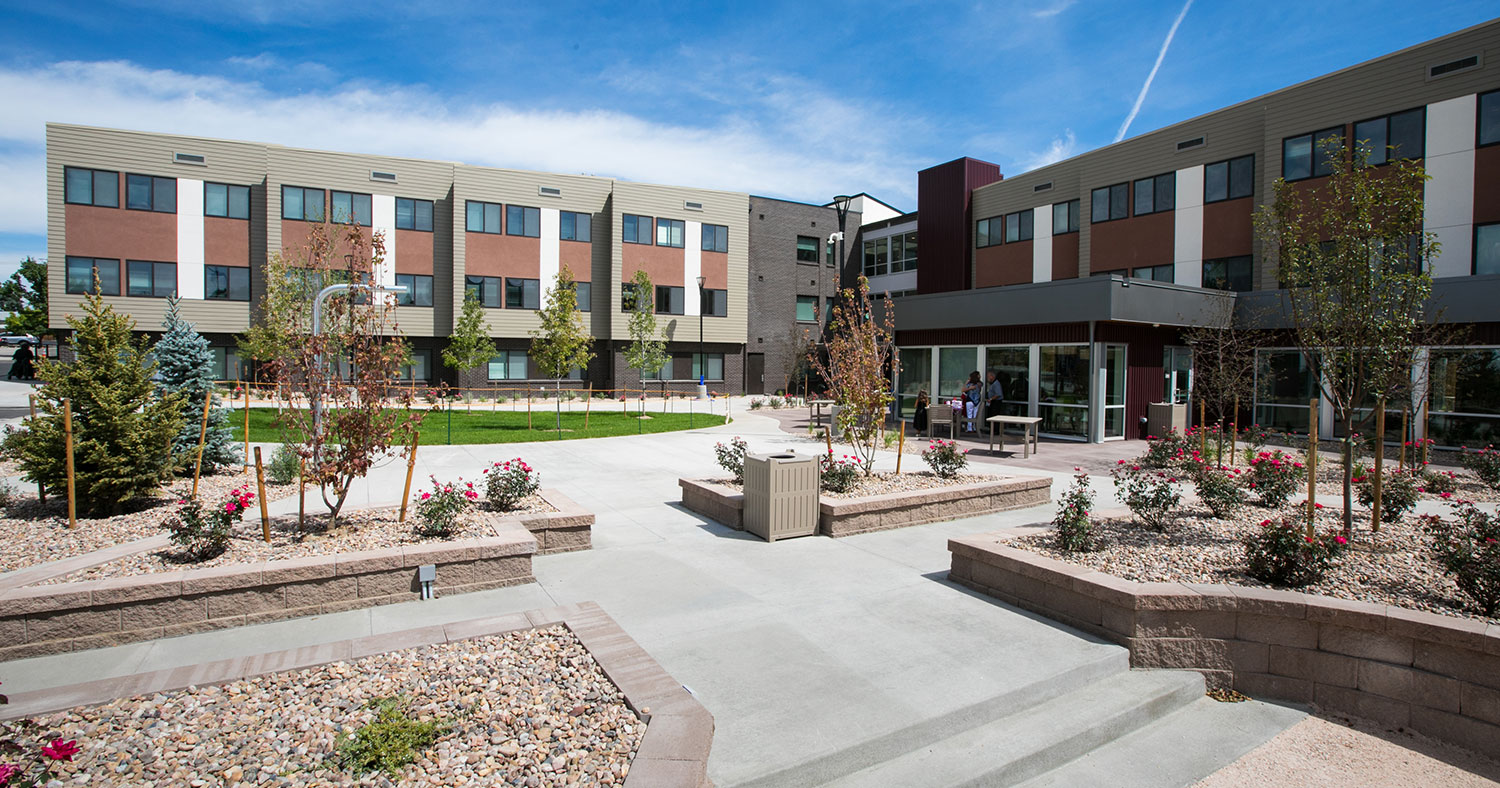Orchid's CO ADVOCACY ----- Olmstead 2021
At Least Part of Homelessness is a STATE OLMSTEAD ISSUE
|
Channel 9 News
Denver Ordinance 303: Camping ban ordinance fails This question on the Denver ballot asked voters whether additional measures should be added to the city’s unauthorized camping ban. |
When we see LOCAL and NATIONAL Media Reports on Homelessness --- it is generally presented as a MUNICIPAL ISSUE. For those people who are Homeless due to COGNITIVE DISABILITY (or other DISABILITY) --- that is a STATE OLMSTEAD ISSUE. Homelessness is not INSTITUTIONALIZATION BUT Homelessness is LEGALLY RECOGNIZED as a SITUATION putting one at "GREAT RISK of INSTITUTIONALIZATION" and subject to the protection of the AMERICANS with DISABILITIES ACT and the OLMSTEAD DECISION. What is that FEDERAL PROTECTION supposed to require? A COMPREHENSIVE and EFFECTIVELY WORKING STATE PLAN with:
|
olmstead Planning --- Seemingly a BIG Step Forward

Val's Take -- Aug. 15, 2021: Polis Administration refers us to Josh Winkler --- with regard to an Olmstead Planning Bill.
Josh is Disability Funding Committee Coordinator and Policy Advisor to the Lt. Governor at State of Colorado.
See more about Josh.
I've known Josh for many years and his video below under the pseudonym "Crippieboy" was one of the 1st videos we posted when we started "Orchid" about 8 years.
He is a long time member of ADAPT and Board Co-Chair of the Colorado Cross Disability Coalition as well as an engineer and business owner .
Let's just say we know Josh GETS OLMSTEAD.
|
In previous discussions with the Polis Administration, we think we are on the same page with regard to:
In New York, Law Enforcement did DEMAND to be part of State Olmstead Planning -- we think it would be a good idea to include:
CRIMINAL JUSTICE & OLMSTEAD
CRIMINAL JUSTICE, OLMSTEAD & HARM REDUCTION
|
PBS NewsHour : In Colorado law enforcement are on the front lines of the mental health crisis.
|
New York Olmstead Plan |
The State of Colorado has contracted with the Colorado Health Institute (CHI) to do some "Olmstead" Research among other things.
CHI is looking at the Court-Ordered Minnesota Plan we have championed. They are also looking at the New York Olmstead Plan among others.
See our TAKE on the New York Olmstead Plan below.
|
Val's Take
|
Your browser does not support viewing this document. Click here to download the document.
New York's 2013 Olmstead Report
See Page 24 for the Criminal Justice Section. |
|
Val's Take
New York's Academy for Justice-Informed Practice is excellent.
Cognitive Disability is UBIQUITOUS in Criminal Justice, but so are UNEXPECTED STRENGTHS. New York like most states doesn't give a lot of numbers or measurable goals --- they provide STRATEGIES. OLMSTEAD REQUIRES MORE THAN THAT. Nowhere is that more daunting than CRIMINAL JUSTICE. A BIG STEP IS GETTING THE DATA. |
New York's Medicaid Redesign Team (MRT)
Using State Medicaid Dollars To Fund Supportive Housing (2018) F. Criminal Justice
The Olmstead Cabinet examined two criminal justice issues concerning people with disabilities and the Olmstead mandate. First, the cabinet sought to assure that people with disabilities who leave correctional facilities are able to access needed community-based services. Second, the cabinet reviewed current state policies to assure that people with disabilities are not unnecessarily incarcerated for minor offenses that are a result of their disability. Under Medicaid redesign, New York has enhanced its ability to voluntarily engage people with significant behavioral health needs in services and provide strong follow-up upon discharge from institutional settings. For the limited number of people who do not voluntarily access services, the New York Secure Ammunition and Firearms Enforcement (SAFE) Act strengthened assisted outpatient treatment. OMH works closely with the Department of Corrections and Community Supervision to implement robust statewide policies for screening people in prisons for mental illness, provide mental health services in prisons, and facilitate reentry from prisons to the community. OMH also offers in-reach services to link prisoners with community-based services and employs pre-release coordinators in prisons throughout the state. These coordinators link mentally ill prisoners with appropriate services in the community and assist, where appropriate, in applying for entitlements such as Medicaid and SSI/SSDI. County-based services for mentally ill jail inmates are supplemented with state funding through the Medication Grant Program to pay for psychotropic medications for released inmates while their Medicaid application is pending. In addition, OMH provides over $4 million annually to support transition programming in local jails. The majority of services to divert people with disabilities from the criminal justice system and transition mentally ill inmates back into the community, however, are administered at a local level. These local services include law enforcement, courts, jails, and community supervision. Examples of pre-arrest diversion programs that exist across the state are crisis intervention teams, emotionally disturbed people response teams, and mobile crisis teams. In addition, there are currently 28 mental health courts throughout the state, and the Mental Health Connections program shares current mental health court resources with counties that do not have an established mental health court. A number of recent reforms will further support the diversion of people with disabilities from the criminal justice system and facilitate reentry from the criminal justice system. Notably, OMH has significantly increased the number of supported housing units for parolees with serious mental illness. It also has partnered with the Center for Urban Community Services (CUCS) to develop the Reentry Coordination System in New York City, which operates as a forensic single point of entry for services, including housing, intensive case management, assertive community treatment, and outpatient clinic services. In addition, OMH has collaborated with the New York City Department of Health and Mental Hygiene and with CUCS to establish the Academy for Justice-Informed Practice to cross-train mental health and criminal justice practitioners on best practices for working with justice-involved, mental health service recipients. The Division of Criminal Justice Services (DCJS) oversees the operation of 19 county reentry task forces and provides $3 million annually through performance-based contracts with localities to support the reentry of people returning from state prisons. DCJS also provides specialized training to police officers to address the needs of people with mental illness. DCJS was recently awarded a grant from the Bureau of Justice Assistance to provide training and technical assistance to up to 10 localities with high crime rates and high per member per month Medicaid spending to address the needs of people with serious mental illness in the criminal justice system and coordinate with community-based treatment and supports. Using the Sequential Intercept Model, DCJS will work collaboratively with OMH to assist localities in conducting countywide mapping of mental health and criminal justice resources for planning purposes. DCJS and OMH also will provide training and technical assistance to identify local service gaps and develop strategies to address unmet need at each interception point. These strategies will help counties address the needs of people with serious mental illness involved in the criminal justice system and connect them to community-based treatment and supports, which is expected to decrease crime rates and the burden on local jails while improving mental health outcomes for the people served. Initial outcome measures for this initiative will seek to identify probationers screened for mental illness, probationers supervised through the joint probation/mental health case management model, probationers with mental illness successfully completing probation supervision, the number of jail admissions screened for mental illness, and the number of police officers completing crisis intervention training. |
There are many good ideas in the 2018 Update.
The aren't any measurable goals, reasonable time frames or real accountability.
|
Your browser does not support viewing this document. Click here to download the document.
|
Orchid's 2021 Colorado Cognitive Disability Report recommends that with respect to PRIORITY SETTING: SUPPORTIVE HOUSING needs to be at the top of the list. [CMHS --- Colorado's Community Mental Health Supports waiver is in need of a MAJOR REVAMP--- and it would make sense for that to come as part of Olmstead Planning & Re-Design.] The 2014 Colorado Community Living Plan does not mention Justice-Involved people with disabilities ----- Criminal Justice is in the 2018 Update and there seems to be interest and willingness to carry that forward. Data Collection is in the 2018 Update and it is ESSENTIAL for MEASURABLE GOALS and REASONABLE TIME FRAMES. Also mentioned in the 2018 Update was the need for an ON-GOING OLMSTEAD PROCESS rather than AD HOC EFFORTS. There seems to be support for that in the Polis Administration. |
A big break-through --- and questions about process
|
|
Another BIG STEP Towards Olmstead "Measurable Goals"
May 6, 2021 Val, I’m delighted to let you know that we will update our Olmstead plan to strengthen the State’s measurable goals. Please know that this process will take significant time and will depend a great deal on resources. We are excited to engage in this process, using the report you worked on in 2018 as a starting point. We will plan to keep you updated on the State’s progress as we work through this, including ways we will engage you and other stakeholders to inform the plan. Thank you for your advocacy, Best, Katie Katie McLoughlin Chief Legal Director Colorado Department of Human Services |
Polis administration Close to saying "Yes" on -------
Olmstead measurable goals?
|
Val's Take
|
April 20, 2021
Thank you for raising these important issues for us. Because of your advocacy, we as a State are actively discussing our Olmstead Plan and possible modifications to it. |
Colorado State Government Uptown Funk:
They won't just give you those "MEASURABLE GOALS" --- don't believe me, just watch.
|
Where We Are At with the Polis Administration & Olmstead Compliance & Next Steps.
THE STATE HAS ASKED FOR MORE TIME TO RESPOND TO OUR REQUEST FOR OLMSTEAD "MEASURABLE GOALS." WE'VE ASKED THAT THEY RESPOND BY AN EXTENDED DEADLINE OF APRIL 20, 2021. [Just to be clear, Stakeholders have been asking for OLMSTEAD "MEASURABLE GOALS" for approximately 5 years and the requirement for "MEASURABLE GOALS" is contained in 2011 US Department of Justice Olmstead Guidance as well as caselaw.] |
|
EVADE, EVADE, EVADE
Laws sometimes protect disfavored people -- & it can be very hard to get politicians to comply with those laws -- oath or no oath
|
Val's Take
|
"Mumbai Police Give Hilarious Twist To 'Uptown Funk' To Raise COVID-19 Awareness" --- RepublicWorld.com
What We Want To Do:
"MEETING with STATE OFFICIALS" in our experience is NOT THE SAME THING as SUBSTANTIVELY NARROWING THE ISSUES. On Sat. March 27, 2021, I submitted a request to the State: "So I have tried to be as clear as I could be with regard to why I believe Colorado is in NON-COMPLIANCE with Olmstead. "If Colorado State Government is not going to provide Measurable Goals or doesn't think it has a legal obligation to do that: I and other stakeholders need a legal explanation for that position in writing. "Olmstead actually provides a lot of FLEXIBILITY to States --- and the protections for the Disability Community are largely PROCESS PROTECTIONS --- but even there --- there is a lot of FLEXIBILITY for States.. "That's why MEASURABLE GOALS are really non-negotiable -- but if the State has a good faith belief that they don't have to provide MEASURABLE GOALS we want to see a legal explanation in writing. "I'm requesting that this be provided on or before Wednesday, April 7, 2021. "Thanks for your time and consideration, Val " |
Some Venting
And Our NEXT steps if colorado won't comply with olmstead
|
Val's Take
Department of Justice ADA Responsibilities:
ADA Mediation Program We note the Hickenlooper Administration back in 2016 REFUSED to MEDIATE.
|
The point I want to make is the OPPOSITION to complying with Olmstead that most people with disabilities face is across the political spectrum.
Now that OPPOSITION is rarely openly stated and BIG TIME STATE PR MACHINES are happy to tell you how much States have done for people with disabilities --- which States have ---- BUT ITS ON THEIR TERMS and it doesn't include Complying with Olmstead. NOW would we be doing all this IF ---- there were an ABUNDANCE of HOUSING, PLACEMENTS & INTENSIVE SERVICES ---- and maybe some Olmstead I's hadn't been dotted or T's crossed. NO WE WOULDN"T be doing all this if that were the case. Further, Colorado's Behavioral Health Task Force doesn't satisfy Olmstead. Would love to introduce Colorado State Government to FEDERAL JUDGE DONOVAN FRANK in Minnesota who was beside himself in frustration as Minnesota brought one plan to him after another that failed to include MEASURABLE GOALS --- he threatened to SANCTION the STATE. Ultimately, Minnesota got on the FEDERAL LAW COMPLIANCE TRAIN --- we'd like to see Colorado and other states do so as well. OUR NEXT STEPS
|
State Rulers and Fed. Disability Civil Rights Law
|
Val's Take
|
Pentatonix cover Lorde's Royals
|
Olmstead Specific Measurable Goals
Where did they come from?
Subsequent interpretative caselaw & US Dept. of Justice guidance
|
Val's Take
[The generally unspoken but sometimes spoken defense of most states is "We're Doing GOOD Things" --- therefore we don't have to have an Olmstead Plan with measurable goals or otherwise. That is the CURRENT MIGHT MAKES RIGHT "LAW" that many people with disabilities are living under --- BUT it is NOT the LAW of the United States of America.]
Your browser does not support viewing this document. Click here to download the document.
National Association of Mental Health Program Directors
Olmstead Risk Assessment and Planning Checklist (2015) See Page 26 & 27: An Olmstead Plan Must Have Concrete, Specific Measurable Goals --- cites cases |
12. What is an Olmstead Plan?
A: An Olmstead plan is a public entity’s plan for implementing its obligation to provide individuals with disabilities opportunities to live, work, and be served in integrated settings. A comprehensive, effectively working plan must do more than provide vague assurances of future integrated options or describe the entity’s general history of increased funding for community services and decreased institutional populations. Instead, it must reflect an analysis of the extent to which the public entity is providing services in the most integrated setting and must contain concrete and reliable commitments to expand integrated opportunities. The plan must have specific and reasonable timeframes and measurable goals for which the public entity may be held accountable, and there must be funding to support the plan, which may come from reallocating existing service dollars. The plan should include commitments for each group of persons who are unnecessarily segregated, such as individuals residing in facilities for individuals with developmental disabilities, psychiatric hospitals, nursing homes and board and care homes, or individuals spending their days in sheltered workshops or segregated day programs. To be effective, the plan must have demonstrated success in actually moving individuals to integrated settings in accordance with the plan. A public entity cannot rely on its Olmstead plan as part of its defense unless it can prove that its plan comprehensively and effectively addresses the needless segregation of the group at issue in the case. Any plan should be evaluated in light of the length of time that has passed since the Supreme Court’s decision in Olmstead, including a fact-specific inquiry into what the public entity could have accomplished in the past and what it could accomplish in the future. |
State's Information Gathering Google Meeting on Olmstead
|
Val's Take
The State reached out to me based on Orchid's 2021 Colorado Cognitive Disability Report which I sent to a number of state officials. The report was heavily focused on Olmstead, while prioritizing Supportive as well as Accessible Housing. Over 18 State Officials had been invited to the meeting called by the State. The meeting was primarily for the benefit of State Officials to gather information, get clarification regarding my concerns. The State to get back to me in approximately 3 weeks or about Wed. March 10, 2020. Selected Olmstead References
US v. Georgia (2010) --- US Department of Justice Olmstead Settlement Agreement (see below)
2. Minnesota Olmstead Homepage
|
Concerns
US v. Georgia (2010) --- Summary & Relevant Links
Your browser does not support viewing this document. Click here to download the document.
|
Citizen Kane (1941) --- Love On Your Own Terms








